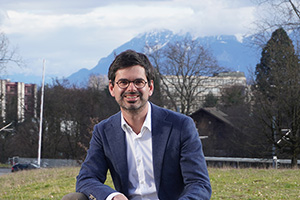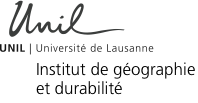
University of Lausanne
Institute of geography and sustainability
Mouline - Géopolis 3514
CH-1015 Lausanne
Martin Müller
Martin Müller is a professor in the Department of Geography and Sustainability at the University of Lausanne. He heads the research team M3 (Materialities | Multiplicities | Metropolis).
He read for a Master's degree in Development Studies at the University of Cambridge and received a PhD in Human Geography from Goethe-Universität Frankfurt am Main. He has held fellowships at the universities of British Columbia in Vancouver, North Carolina at Chapel Hill, Oxford, Vrije Universiteit Brussel, the Institute for Advanced Study in Marseille and Politecnico di Milano. Before coming to Lausanne, he was Swiss National Science Foundation Professor at the University of Zurich.
Martin Müller's principal research is on the urban dimension of the sustainability transition and focuses on three major strands:
1) Culture (museums, theatres, opera houses etc.)
2) Sports events (Olympic Games, Football World Cup etc.)
3) The geopolitics of geographical knowledge (in particular thinking with and through the Global Easts)
Martin Müller is an international expert on the sustainability of major events and cultural institutions. He has been interviewed for the The Economist, Art Newspaper, New York Times, BBC World News, Financial Times, Associated Press (AP), Forbes, Bloomberg, Associated Press, Newsweek, International Business Times, ABC, Inside Climate News, Sports Illustrated, Toronto Star, Svenska Dagbladet, South China Morning Post, TV5 Monde, Agence France de Presse, Der Spiegel, Frankfurter Allgemeine Zeitung, Austrian National Radio (Ö1), Swiss Radio and Television (SRF), NZZ, Tribune de Genève and other outlets.
He has published with institutions such as the International Council of Museums (ICOM) and the International Committee of Museums and Collections of Modern Art (CiMAM).
He is a contributor of commentaries to DIE ZEIT, Süddeutsche Zeitung, NZZ, Tages-Anzeiger and Le Temps.
He speaks and gives talks in English, German, French and Italian, with comprehension of Spanish and Russian.
His work has been translated into several languages, including French, German, Russian, Portuguese, Polish, Georgian, Korean and Japanese.

